- Home
- Peter Carey
My Life as a Fake Page 11
My Life as a Fake Read online
Page 11
But I saw that he had somehow made himself utterly miserable, and I was sorry for him.
Shall I take the letter to Jalan Campbell?
As I reached for the false document he latched on to my hand and squeezed it very hard. I know you think I’m a nasty piece of work, darling. You’ve always thought I killed her, haven’t you?
For some insane reason, I thought he meant Noussette.
Your mother, he said softly. His eyes were watery. That’s why you told me such a hurtful thing. You’re furious with me. You’ve always hated me. You think it’s all my fault.
Finally we had reached the conversation I had come to have, but I found it impossible to breathe.
I’ll take the letter, I blurted. I fled into the street, umbrella-less.
22
When the foetid odours of gutters and ripe durian blossom in the dark—that is, in the very first minutes of the tropical night—I found an oily, ragged figure sitting on a low stool in the open doorway of the bicycle shop. It was the Ancient Mariner himself, doing violent battle with some piece of metal he had locked inside an old black vise. What the metal’s purpose was, I still have no idea, but something in the way he worked it—his light and regular tap-tap, tap-tap—suggested a facility I should have anticipated. After all, the author of the McCorkle Hoax had been repairing bicycles on Jalan Campbell for over a decade.
The tough little Chinese woman sat behind a crammed display case counting rubber bands and packing them in cellophane bags. Seeing me, she called to Chubb. At the time I thought she was drawing his attention to a visitor. Actually she was ordering him not to speak to me.
In any case, Chubb did not directly acknowledge me. First he laid the hammer on the concrete floor, then rinsed his oversized hands in gasoline. As he dried himself on a filthy cloth, he really did look like the lowest sort of beggar. I was blind to the complicated nature of his defiance; in fact I thought him embarrassed by his poverty.
Holding out Slater’s letter, I could not help staring at the suppurating ulcers on his sturdy peasant legs—so deep they seemed to go down to the bone. He caught me at it, and at the time I thought I saw his shame. As for Slater’s little hoax, he accepted it with no enthusiasm. He had more dangerous games to play.
Can’t talk now, Mem. Customers unhappy, he said, and not only customers. He jerked his head towards the woman I assumed must be his wife. So sourface! He turned over the envelope absently.
Just open it, please.
By now we were outside in the busy colonnade which, like all such passageways in K.L., is exactly five feet wide, a specification stipulated by the great Stamford Raffles, who never seems to have anticipated the claustrophobia it might induce in members of the white races. I drew into myself like a tall pale-breasted bird while the crowds pressed in relentlessly about me and the bicycle-wallah with his crumpled envelope.
Of course I was waiting to enjoy his pleasure, to see his face at the moment he understood the generous nature of the gift. This was not to be.
Is something the matter?
They claim, he said, staring angrily into the envelope, they are giving me money. But there is no money, Mem. It has been stolen.
Here Slater’s sarcastic plan began to show its shoddy construction, and I had no choice but to plug the leaks as they appeared. The insurance company will reimburse me, I said.
But what is my suit to do with you?
It had been identified by my room number. Thank heavens, I said, you can have a suit again.
Yes. He retreated deep into the oily tangle of the shop-house, leading me into a maze of old bicycles. But the suit was worth much less than what they are offering.
In answer to this I invented some nonsense about insurance companies’ minimum payments. He raised an eyebrow, an expression I read more clearly when I learned that he, like Bob McCorkle, had worked in insurance. Still ignorant, however, I followed him back to a workbench set up as a Kim’s Game of tiny metal parts.
With the letter in his right hand, he sifted through this miscellany with his left. How would they know the value-lah? You told them, is it?
Yes, I said miserably. I told them it was a very old suit.
He cocked his head and peered up at me. Damn the rascal. He was smiling. You are a very kind young woman, he said. Very, very kind.
I could feel blood flushing all the way into my tingling scalp.
Tomorrow is Monday, he said. Come early-lah. We will go to the tailor together. Perhaps I bring you a little poetry in return.
I was pleased, so very pleased that I kissed him on his poor dear grimy cheek.
Of course I would not reveal my literary ambition to Slater, who by eight o’clock that night had taken possession of a larger corner table which the flight crews had previously monopolised. Engaged, no doubt, with his fluff piece for Nova, he had his Olivetti Valentine open and a self-important mess of papers spread all around him. What a peacock. This was exactly how he had squandered his talent.
Good, he said, when I told him of the tailor’s appointment on Monday morning. I feel happy for the poor chap.
Given his original spite, this magnanimous response should have surprised me.
Poor beggar, he said now, as if all he’d ever intended was an act of charity. What a miserable existence he must have, don’t you think so, Micks?
We sat in silence a moment. I could see he had been brooding, though I misconstrued the reason until he asked, rather brusquely, what I was doing that evening.
Then I understood immediately. He wished, finally, to talk about my mother.
Perhaps we might have dinner, he suggested.
If you like.
Shall I call in half an hour?
Though this was the only thing I ever wanted from him, now I was suddenly almost ill with fright. He had, as far as I was concerned, simply killed her with his prick. I went to my room and waited, wondering what disgusting secrets I was about to hear.
Slater, it seems, was equally hesitant. In any case, the phone did not ring and I went to bed hungry but grateful just the same.
• • •
Monday morning Christopher Chubb was waiting for me. As I entered the shop he held out his arms and twisted his mouth in a rictus of embarrassment. He was dressed in the clothes of a far heftier man—a huge khaki shirt and a pair of shiny black trousers. Though well known for my lack of fashion sense, even I would have been embarrassed to be seen in such a get-up.
Fortunately I had already passed two Chinese tailors, and the first was only two doors down. So this was where I rushed him, before he knew what I was doing.
The tailor was about Chubb’s height, very thin, with pixie ears and freckles on a wizened jockey’s face. He smiled at me politely but when he looked over my shoulder his countenance became less friendly. Cheh. Wha you want?
I told him I wished to look at fabrics.
He did not seem to hear me. No open, he said, scowling angrily. Closed today. Too busy now.
And then, somehow, the interview was over—Chubb retreating, me in the street, the tailor shuttering his store. Too busy now, he snapped. Very sorry.
This rudeness was so unexpected that I did not yet appreciate how colossal it had been. I will come back, I said.
No return, he said, pulling down the roller door and locking it. Very long time busy.
I turned to Chubb, who was standing on the ruptured pavement with his arms folded across his chest and a most un-puckish expression on his face.
These tailors no good-lah, he said. Too expensive. They cheat you. Batu Road much better.
I imagined our ejection to be caused solely by Chubb’s peculiar choice of clothes. At the second tailor’s, only a few doors from the first, I clarified this matter straight away.
My friend’s good suit has been ruined, I explained. We need a new one rather quickly.
This fellow appeared much more reasonable, dressed in a splendid dark suit, a blue shirt, a white Eton collar, and something very li
ke an old-school tie. But once he understood that I wished to have a suit made for his neighbour, who was hovering uncertainly at his door, I saw he was a frightful snob. He sighed and bowed his head.
I became rather head-girlish about the fabric, but my fierce forward action had not the least effect on him.
He waited for me to finish, pinching the brow of his nose between thumb and forefinger. Missus, I ask you a question? You know this man?
He is a very famous poet.
No. He is not.
He is my friend.
You are buying him a suit?
Yes.
Madam, please, you leave him.
I beg your pardon.
He not your friend. He not a person.
He is a poet.
Madam, when he first arrived in Jalan Campbell, the doctor saw him, Madam. Very late in night, he come along the centre of the road. No legs-lah.
I looked towards Chubb, but he had disappeared.
See, said the tailor. He gone. He very frightened now I tell you.
When you say he had no legs, do you mean he was drunk?
Not drunk. He come into street in the middle of night. Not human, Missus. No legs, see?
Was I meant to believe Christopher Chubb had somehow floated up Jalan Campbell like a figure from Chagall? The tailor—whose name was apparently Arthur Fatt—seemed in every respect an urbane, even sophisticated man.
This sort of ghost, so Mr Fatt informed me, was of the type that are like leeches: They will drink your blood until you grow weak and die. Did I understand this?
All I understood was that Christopher Chubb had seriously alienated his neighbours. And just now, as he reappeared at the shop door, he was shown no more courtesy than a pariah dog.
Go, cried Fatt. We don’t talk with you. Get out, get out.
More shocking than this abuse was how Chubb cowered in the face of it. As he crabbed back towards his shop in his big floppy ugly clothes he really was like some poor tormented thing.
You ask Mrs Lim, Fatt said, energetically rolling up a bolt of pale-blue linen. That man drains blood.
I beg your pardon.
Choy! Beg his pardon. You know bowl for soup. Drains blood into bowl and drinks it.
No.
No? Sorry to argue. You welcome anytime, Madam, but not for that one.
Then he too began to close his store, and I found Chubb sulking in the recesses of his shop. He was working on an upended bicycle and did not turn as I approached him. Instead he unclipped the chain and wound it carefully around his shaking hand. Not for you to stick your nose in, he said wearily.
I’m very sorry.
These people I know. Not you-lah.
I waited for him to say more, but he would not face me. The woman had come down the stairs and was standing in the shadow at the bottom, staring at me expectantly.
Then it was to Chubb she turned, speaking angrily, I thought.
He picked up a spanner and attempted to fit it on the axle nut, but there was such a tremor in his hand that he had to lay it down. You see what has become of me, Mem, he said.
I could not see how one might answer him. He seemed a soul in hell, like a prisoner turning the capstan in the drowning room, forever indentured to something to which he himself had given birth.
23
One minute I would be filled with pity and the next with such intense dislike that I could only shudder. In addition I felt guilty, for even after I recognised the complete awfulness of Chubb’s situation, I never ceased plotting ways to pry that poetry away from him. You must really believe me—I was prepared to take it, using whatever cruel hook was required to rip it free. This is not appealing, of course, but I did not shock myself. From my first year at St Mary’s Wantage I had known myself a nasty girl.
I returned to my musty refrigerated room and, after fidgeting and fretting for an hour or so, I began to snip at my hair. I first attacked the vile little tropical cockatoo crest and then, as always happens, I could not stop. Annabelle would have shrieked at me but she was home in the Slough of Despond, drinking gin and tonic and chewing her lovely little fingernails. Unchallenged, I was free to continue until I had made myself into a ragged mess. I then used Brylcreem, which can give an art-student look, or something close to it. My linen trouser suit really needed pressing, but nothing else was available so I put it on and went down to The Pub. Slater was ensconced there, naturally, but I was feeling very jangly and not even he could deter me from a double Scotch.
So? he said, shifting papers away lest I wet them with my drink. Has the oaf from Porlock shoved off to Savile Row?
I could not bring myself to repeat what I had seen that morning in Jalan Campbell—not just the ragged creature hammering metal in his vise but that horrid vision of him crabbing along the shadows of the five-foot way. Blessedly Slater was distracted by my hair.
Micks, sit next to me.
Do I look awful? I slid around the banquette to submit to his inspection.
My dear girl, you are so blessed you could never make yourself look awful. God, I’ll never forget you when you came back from Wales that year you were kicked out of Lady Margaret Hall. You were like a little wild animal, smelling of goat and with burrs stuck in your hair, but still you did not look awful.
Slater could not say this sort of thing and stay in neutral gear, so I stared at him until he dropped his eyes.
Just the same, old girl, when you get back to London tomorrow, you might want to pop into Sassoon’s. Molly always goes to Sassoon’s, I’m sure she could get you an appointment straight away.
Tomorrow?
Tomorrow is the thirteenth. We leave on the thirteenth, arrive in London on the fourteenth.
But we haven’t even talked, I said—and suddenly, to my complete surprise, burst into tears. You hid from me all the time, I said. You left me alone. I don’t understand you. Anyway, I can’t go. I won’t go. I have things to do in Kuala Lumpur.
What things, darling?
But of course he would have become hysterical if I had told him. I shook my head.
What things? He reached for my hand. I let him take it. Still, I could not stop crying.
Micks, he said, I’ve been rather busy. I’m sorry.
What have you been doing, John?
His mouth went odd, and I understood. He had been busy being Slater. Well please do not write it up in Nova, I said, because it’s more than anyone needs to know.
Come, Sarah, don’t cry. Why should you care what I do? You don’t even like me. You never have.
I don’t have to bloody like you.
I could feel the grief gurgling inside my chest like some dark and viscous thing I did not ever wish to see.
You promised we would talk, I said. It’s why I came.
Slater put his arm around me and pulled me to my feet. Very well, he said. Shall we go?
No, no. We have to talk, John.
Yes, he said. Abandoning his typewriter and his papers, he led me out the door and did not release his hold of me until we were in a taxi.
It was Jalan Petaling he took me to, I realise now. At the time I knew only that it was a kind of night market and too crowded for me to hear what he was saying, so in the end he took me into a very rough-looking restaurant where the concrete floor was wet and the customers used a garden hose to wash their hands. He ordered beer and they brought a huge plate of crunchy shrimp. Slater tasted one or two but mostly watched me eat.
I suppose, he said, I can guess what you want to discuss. I’m sure you realise I want to talk about it too.
My mouth was filled with shrimp. I could not stop myself. I ate their heads and tails, coughing as their little beaks stuck in my throat.
What aspect of it seems most pressing to you?
I paused in my desperate feast. Sometimes, I said, I have imagined you were my father.
He laughed.
But I know I have Boofy’s eyes.
You also have his hair—very good hair too, I w
ould say thick and dense. I wish you would not mutilate it so.
I don’t know why she did it.
He was listening intensely. He did have the keenest, most demanding eyes. They were what the frown marks pointed to, the sexual focus of his face.
You dumped her, I demanded. That was it, wasn’t it?
Dear Micks, how could I drop her? I never had her.
But he’d had everyone, all his life, even now. He was famous for it. He’d had my mother well and truly, cock and balls, I knew it, could see it in my mind forever. Oh, that’s not true, John, and you know it. Even when I was nine years old I could see what was happening.
How could you know?
Do you think children are blind? I saw how she used to kiss you. You think a child wouldn’t notice these things? Her father is away and her mother is kissing another man like she wants to eat him for her breakfast. I remember her kissing you like that in public, in front of bloody everyone. Neither of you gave a bugger who saw you.
Oh Jesus, he said, you poor baby.
That baby is long dead, John.
How many times do you think your mother kissed me?
I don’t even want to think about it. It makes me sick. I really don’t like sex, I wonder why!
You remember her always kissing me?
Yes.
It happened exactly once.
Don’t make me laugh.
Once. That is the kiss you remember. It was at the garden party for the Hammonds. That’s what you’re remembering, isn’t it? I don’t know the names of all the guests. It was when Boofy was making a mess of being a film producer. The investor was Scots. Your mother said he was ‘Edinburgh common.’
I’m not likely to forget it, am I? Christ! The day my mother committed suicide.
And your father had taken that young actor, it was Trevor Roberts, up to see the horses.
John, I do remember.
Then you would know that your pater was being rather naughty and your mother becoming most upset.
What exactly do you mean by that?
He hesitated. Think, he said.
And I thought, Christ, Slater, you have no bloody idea, do you? I could see that day in every detail, that lovely English summer sky, a watery haze, my mother’s hallucinogenic flower beds. It was the last summer before the war. The martins had just returned and were swooping round the eaves of what we called The Gardener’s Cottage, although no-one had lived there for many years.

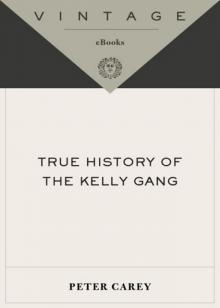 True History of the Kelly Gang
True History of the Kelly Gang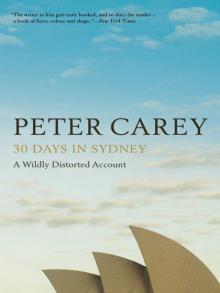 30 Days in Sydney: A Wildly Distorted Account
30 Days in Sydney: A Wildly Distorted Account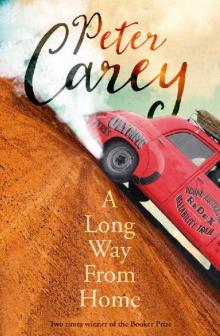 A Long Way From Home
A Long Way From Home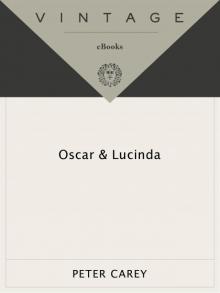 Oscar and Lucinda
Oscar and Lucinda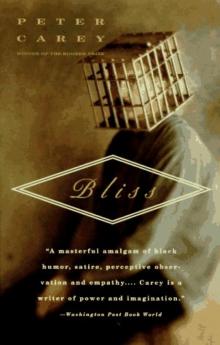 Bliss
Bliss Wrong About Japan
Wrong About Japan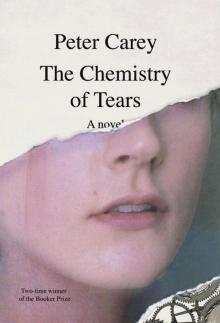 The Chemistry of Tears
The Chemistry of Tears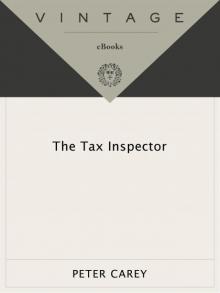 The Tax Inspector
The Tax Inspector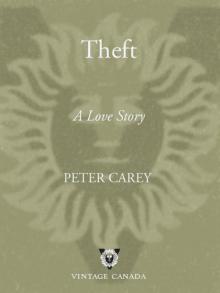 Theft: A Love Story
Theft: A Love Story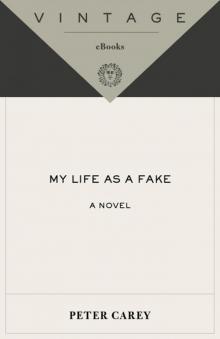 My Life as a Fake
My Life as a Fake Collected Stories
Collected Stories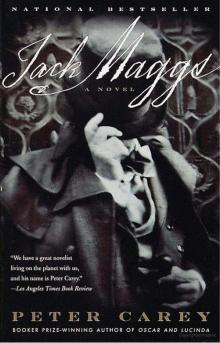 Jack Maggs
Jack Maggs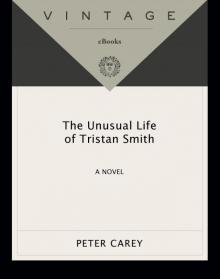 The Unusual Life of Tristan Smith
The Unusual Life of Tristan Smith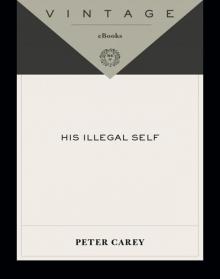 His Illegal Self His Illegal Self His Illegal Self
His Illegal Self His Illegal Self His Illegal Self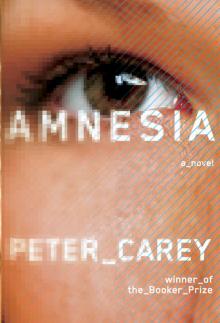 Amnesia: A Novel
Amnesia: A Novel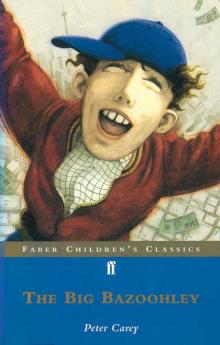 The Big Bazoohley
The Big Bazoohley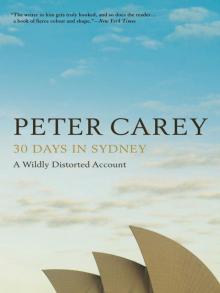 30 Days in Sydney
30 Days in Sydney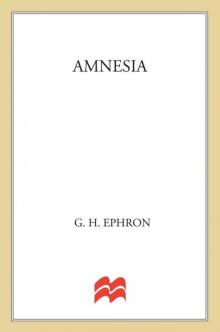 Amnesia
Amnesia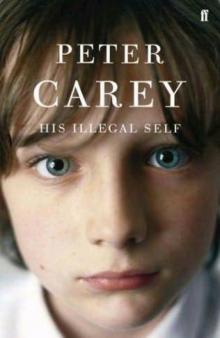 His Illegal Self
His Illegal Self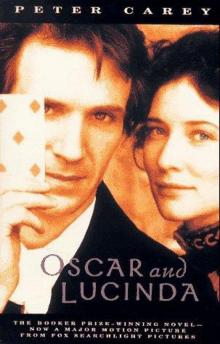 Oscar and Lucinda bw-1988
Oscar and Lucinda bw-1988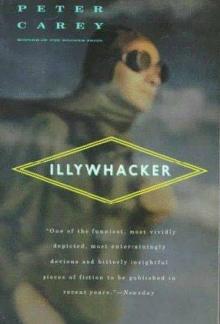 Illywhacker
Illywhacker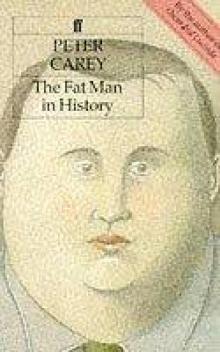 The Fat Man in History aka Exotic Pleasures
The Fat Man in History aka Exotic Pleasures